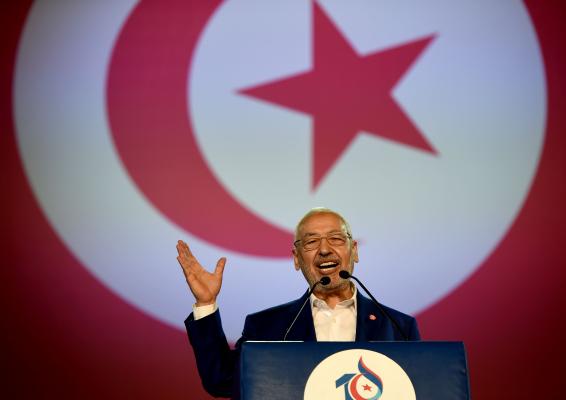In an interview with the French Le Monde newspaper, the leader of Tunisia’s Muslim Brotherhood Ennahda party Rachid Ghannouchi announced that the path of the party has been transformed and said that “We are leaving political Islam and entering democratic Islam. We are Muslim democrats who no longer claim to represent political Islam”
Ghannouchi stressed that the Ennahda party is “a political, democratic and civilian party based on modern, Muslim and civilised values … We are going towards a party which specialises only in political activities”. Ghannouchi explained further by saying “We want religious activity to be completely independent from political activity. This is good for politicians because they would no longer be accused of manipulating religion for political means and good for religion because it would not be held hostage to politics”.
This is Ghannouchi’s current opinion and position. Does this mean that he is apologising for decades of incitement carried out by the Muslim Brotherhood in our region under religious cover in order to reach purely political purposes that he openly admits now by saying “This is good for politicians because they would no longer be accused of manipulating religion for political means and good for religion because it would not be held hostage to politics”?
Or is Ghannouchi convinced that there is no hope for political Islam in the Arab world and internationally, and that this is the beginning of the actual end of political Islam, especially as a European diplomatic source told the French press that “Ghannouchi is almost obsessed with persuading Western partners that the Ennahda party is not the Muslim Brotherhood”? We say that there is no hope for political Islam because, particularly after the Arab Spring, there is a clear rejection of currents of political Islam in our region, and in Gulf societies specifically. The currents of political Islam have lost their credibility and are no longer what they were previously.
Internationally, we are coming to the end of President Barack Obama’s presidency. Obama thought that political Islam would bring democracy and political reform to the region, and that Islamist parties, particularly the Muslim Brotherhood, would be along the lines of Recep Tayyip Erdogan’s party. However, today we see what Erdogan is doing in terms of encroachment to attain more power.
Will Ghannouchi’s announcement that the Ennahda party does not associate itself with “political Islam” start a serious debate in our region that discusses the damage that political Islam causes? Will it result in the rectification of outdated concepts that are cemented in the minds of generations as a result of the Islamic movement campaigns, especially the Muslim Brotherhood, which led campaigns that incited hate for decades in Egypt, Saudi Arabia, Morocco, Tunisia, Algeria and destroyed young people after transforming them into extremist villains? We hope so.
